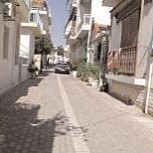
Nea Ionia Magnesias
Social challenges
The main social challenge for the city of Nea Ionia will be the protection of those social groups who are threatened by deprivation and exclusion, assuring the role of the state as the guarantee of fundamental rights. Another important challenge is the participation of inhabitants in planning and regeneration processes in the city and especially in the city’s multiply deprived areas. With regard to the expectations of the residents it is very clear that the people want action. Therefore time is needed to train these people and enable them to give a contribution to projects. It is necessary to make them understand that these developments need a certain time until they lead to visible improvements in their neighbourhoods.
Economic challenges
The challenge will be to attract new investments and new economic activities that will boost and reinforce the productive basis of the area with a focus on the sector of new technologies. That means to develop productive and technological infrastructures that will constitute the new comparative advantages of the area and will attract the essential wave of investments emergence of the city of Nea Ionia to a centre of high education, research and technology, and also of cultural interest with a pan- Hellenic dimension. This also should lead to the development of tourist products including the development of new technical and social infrastructures and the modernisation of the already existing ones.
A further challenge with regard to a sustainable development of the city will be the interventions in the direction of modernisation of the productive basis and improvement of the business environment development of the city in such a degree that will constitute the third pole of development at national level, as the main element of the urban-block of Volos-Nea Ionia.
The city has to combat the long-term unemployment with a focus on activities with a multiplying influence in the local economy, through integrated programmes and interventions. Also important in that field is the education and training of the human potential in all the dynamic sectors of economy.
Environmental challenges
The functional status of the search for greenery in the neighbourhoods is being predicated, and also the continuous regeneration of the mechanical equipment for the cleaning services for a clean and enhanced city. Also the reduction of the use of private cars should be a major matter of concern for the city, through the adoption of different measures like the promotion of the use of buses, pavements, bicycles routes, etc.
Physical challenges
The urban planning scheduling of the wider area is needed in order to avoid conflicts in the landuse. The land use has to be registered and controlled, with reference to the delimitation of the natural environment and the safeguarding of its quality. Furthermore there is a severe lack of infrastructure in the city. A special challenge is the fact that a lot of buildings in the deprived areas have been sold for little money to the tenants. They are now the owner but they do not have any resources to invest in their homes in order to maintain or improve them.
